A Co-constructed and Co-produced Evaluation of the Anchor Project in Shetland
The Anchor Project sits within an ambitious Scottish Government policy landscape to eradicate child poverty through involving children and families in a fair and inclusive manner. The overall aim of Anchor was to facilitate learning and action in family led problem solving and early intervention.
Appendix iii. Anchor Project Workers Photovoice Data
Anchor Project Worker Information Returned Before the January 2023 Meeting
Participant 1
As a person working for the Anchor Project it means, early support preventing escalation of a families situation. Enabling families to recognise when they need a little help, having the confidence to ask for assistance when needed. Anchor is for anyone no one knows what is over the hill, so should be stigma free!
The great part for me is having the time to build a relationship with families this can be pretty quick but having the time to visit and have a coffee and chat helps build trust. This is important when families are feeling bogged down with issues and do not know where to turn. This chat can bring out lots of information that can help turn the glass half empty to half full, making the family feel listened too. And the right signposting at the right time to other agencies. For this the staff need to be informed and empathetic.
The hub has been amazing I feel this could be expanded on to be a safe place for people to come not only for food, blankets, clothing etc. but build that trust to have more dialogue. The work in schools has been good but school is not always a positive place for everyone.
Anchor needs to be welcoming, safe, comfortable like a warm coat or virtual hug. I feel more could be done to bring families together to encourage peer support in localities, to combat isolation, this can be just as much an issue in Lerwick as rurally.
More of what we have been doing but reaching out to more families.
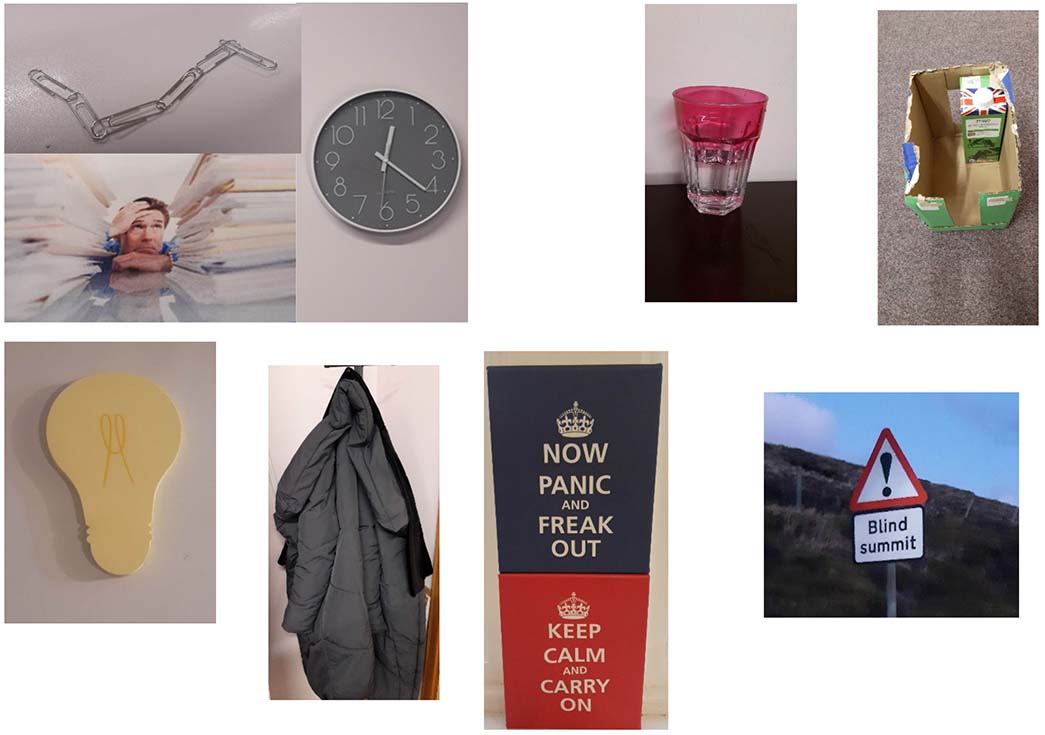
Participant 2
What does Anchor mean to you?
It means getting help when you don’t know who to ask or where to turn. When you’ve got a problem but you’re not sure who to speak to about it. It’s knowing that you can have a conversation about something that’s worrying you and you will be listened to and supported. Taking things at your own pace.
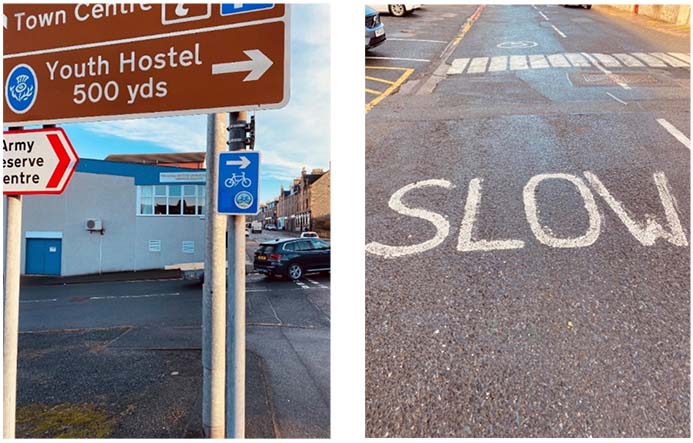
A friendly ear. Being able to build up a trusting relationship.
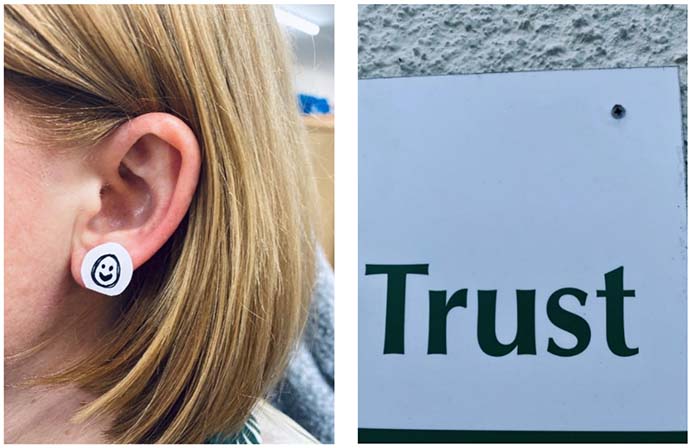
What has been good about Anchor?
The way it has evolved and adapted, its flexibility, its friendliness and openness, its willingness to try different ways of working by listening to the champions of Anchor as well as the critics.
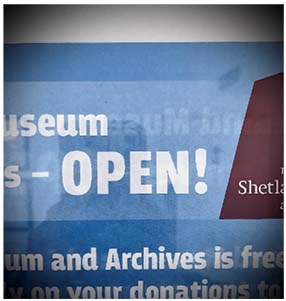
Having the time to spend with people, not being rushed and being able to have one-off conversations or build relationships that last over many months. Breaking free from the rigidity of timescales.
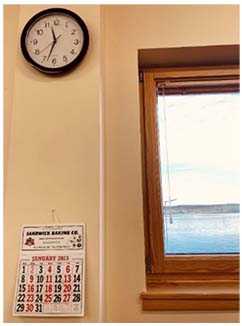
Breaking down the stigma of asking for help. Making existing systems more transparent and accessible for families and individuals e.g. GIRFEC, ASN/Mental Health assessments for children, benefits system, demystifying schools and how they work. Working more closely with Parent Councils and helping them to establish themselves as a legitimate and valued resource for the school.
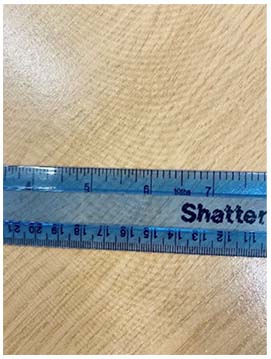
What could Anchor do more of?
Working more outside school setting. Perhaps working more closely with other groups in the community throughout whole of Shetland.
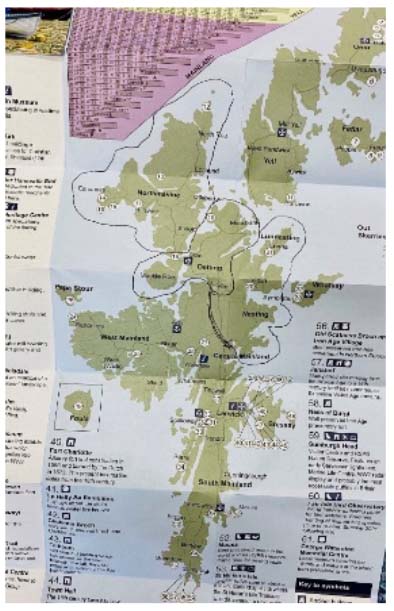
A mobile vehicle travelling around, like a library van but with Anchor staff who would sit and have a cuppa and a chat as well as receive any practical support/advice they may need (food,clothes,fuel vouchers)This would be especially good for the more remote areas of Shetland. I think sometimes we expect folk to come to us when they are experiencing hardships but at times these people need gentle encouragement to speak and going to them can give them a reason to open up about their worries.
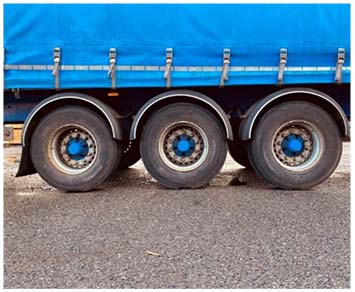
More Anchor champions! Using existing school staff and workers who already have established relationships in their communities to be advocates for Anchor, to understand and promote the Anchor ethos and ways of working. Connecting people together and enhancing communication throughout Shetland.
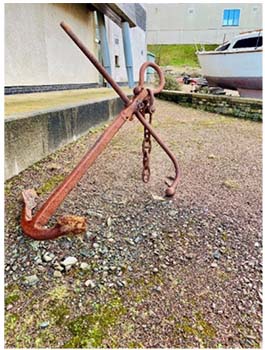
Participant 3
What does Anchor mean to you?
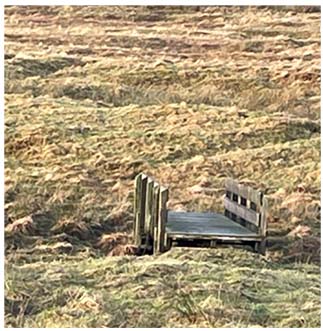
“Smile at the Obstacle for it is a Bridge”
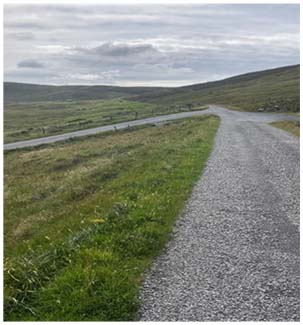
“Let us help you take the right path”
It’s a team of people, there to listen without judgement, to support you to find the right direction to take when life is difficult and you don’t know who or where to turn to. When things are so overwhelming Anchor shows kindness and care to help build bridges and take down the walls, to direct you down the right path while always shadowing your journey.
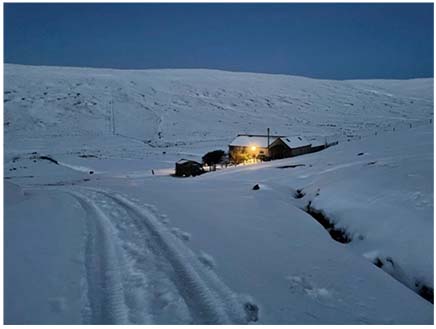
Let Anchor be that light that guides you along that difficult road.
What has been good about Anchor?
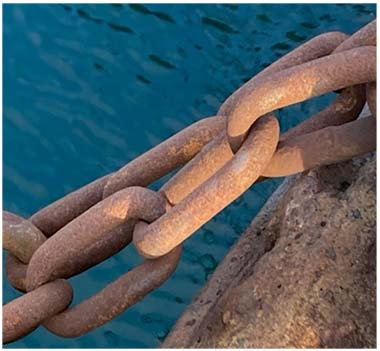
“Let us help you establish those links”
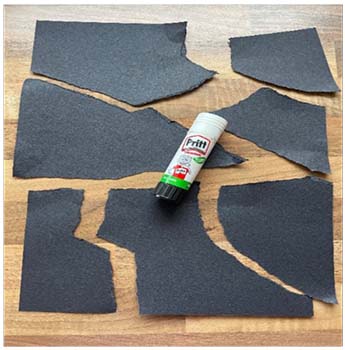
“Anchor can help put the pieces back together”
The way it has established links within the community and continues to put the pieces together to find the right area or service to ensure you are getting every help and support you may need, by having those conversations you may find difficult.
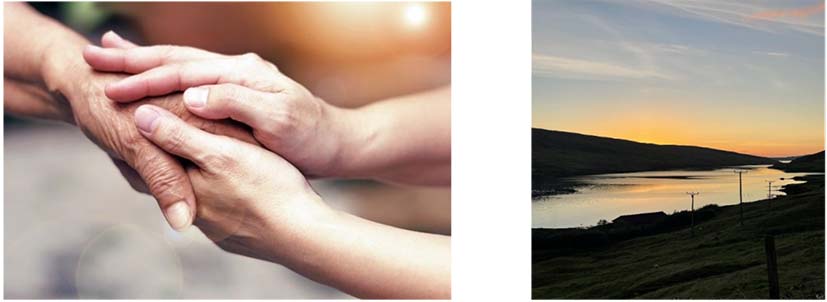
The support and care they give, whilst showing empathy. The listening ear, their time without watching the clock. The compassion and allowing you to build that trust in your own time. Creating the calm after the storm.
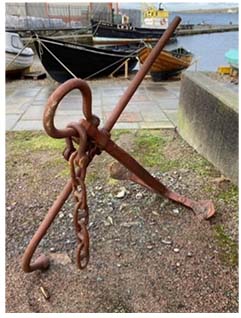
Anchor by its name is a secure point that things attach too, a point of reference that keeps you centred, if Anchor can build on that security and be the point of strength to help overcome those difficulties and problems. To keep instilling the support in the community to diminish the stigma behind asking for help. To help alleviate the negative opinion of services such as Mental Health, GIRFEC, Social work etc.
What could Anchor do more of?
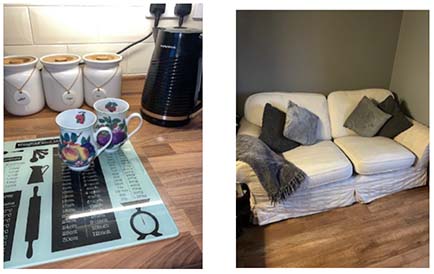
Having a dedicated, safe, comfortable space, away from others in a less office structured environment, to make it feel more like a chat with a friend over coffee.
Participant 4
What does Anchor mean to you?

Light comes in many different forms and they are there to help you find your way in dark times.
What has been good about Anchor?
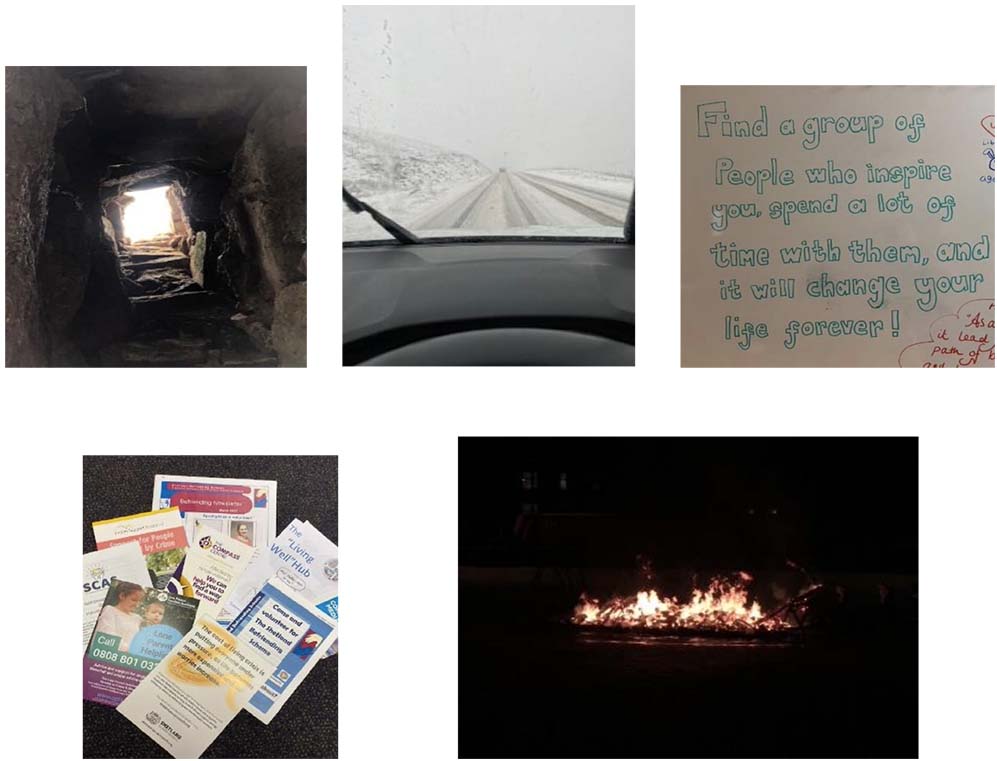
Sometimes I have to navigate uncomfortable conditions or it feels like I’m falling down a rabbit hole…………… But they can link you us with services that can help and support us, showing us there is light at the end of the tunnel.

What could Anchor do more of?

Stop the stigma that is attached to asking for help and support and help other agencies with Trauma informed practice and help them become more compassionate and understanding towards families and their experiences.
If you had to design Anchor, what would it look like?
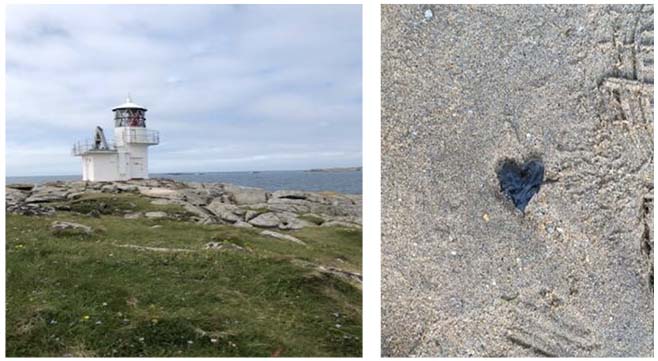
A warm and welcoming place where you would feel safe and secure in the knowledge that they have you at the heart of the matter and everything is confidential.
Participant 5

A friendly phone call or text message during Covid lockdowns or stressful times could really help someone who is isolated or struggling to manage. That contact can be anything from an uplifting conversation to a request for further help with something that is difficult to manage.
I helped a family I was working with to fill out housing forms to make sure they were getting all the points available to them. The staff at Anchor provided advice and support to me to make sure I was getting as much relevant information as possible in the form. I wasn’t working alone to try to get the best outcome for the family I was working with.
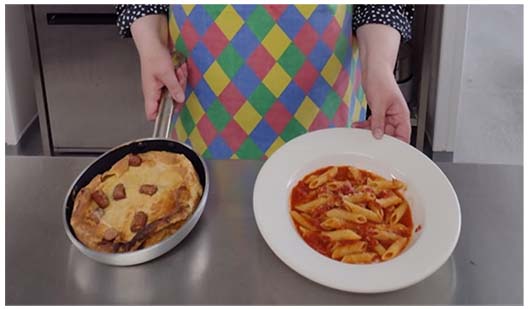
A cookery taster session was made available for any of the families being supported. I went with the family member for support and this was really enjoyable for both of us. The food prepared was taken home at the end of it as well. Lots of useful tips and the food prepared was available in the food packages the families receive. I think this is something that could be done more often, maybe tailoring the workshops around useful skills or information for the families. I also think a sort of ‘hub’ or regular place where people could meet would be really good for families in similar situations.
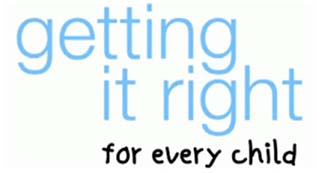
I have attended a GIRFEC meeting for the child in the family I support. My role was to support the mum during the meeting as it can be very intimidating meeting with all the professionals, especially when discussing aspects of your child’s education that they are finding difficult. The family I support have found this situation very stressful at times and haven’t felt that the school has always been very supportive. I was glad to be given the opportunity to make this a little less intimidating. We discussed what she would particularly like to speak about during the meeting and I tried to find an opening to make sure that she was heard.
I think the food parcels are a lifeline to some families and them being delivered by the team was an enormous help during covid lockdowns. I think knowing that this could be relied on must have provided peace of mind to many families.
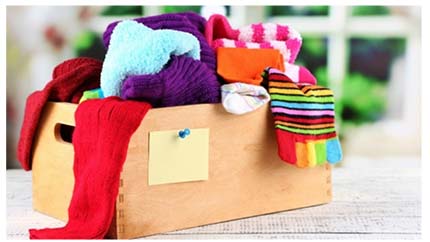
During covid restrictions charity shops were closed so a resource that would normally be a help to families wasn’t available. Growing children always need clothes and if you have a large family then this pressure is even worse. Many families have relatives that hand down clothes but not all families do. Donated clothes being available when required was a big help to a family I support.

I was delighted to pass on a clothing voucher for outdoor clothes and shoes to the family I support. The voucher was for a local shop so she was able to use it for what she knew her family needed the most.

I like to catch up with the person I support at a café over a cup of coffee. Sometimes all that is needed is a friendly chat and an opportunity to speak about anything that comes up. I really enjoy catching up with a coffee and cake and taking a little time for yourself to do this is really valuable for a busy mum. In my opinion the Anchor/early help team provide a really flexible service so whatever a family might need, whether it be a little help or support in many different areas of their life, the help is available. I feel being part of this team has given me a much deeper understanding of the challenges vulnerable families face and how important it is for support to be given as early as possible to help lessen the impact on the whole family’s welfare.
Participant 6
Anchor has the time to help people piece together where to start. The knowledge to pass on information and empower individuals to make changes in their lives.
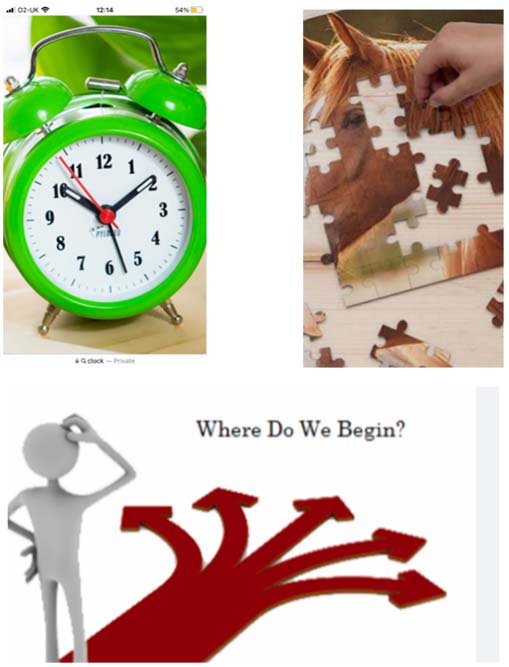
Anchor has been good at helping the helpless. Those who don’t think they are entitled to support or their problems aren’t big enough to ask others to get involved. Just having time for a cuppa or a chat is enough to help get people on the right track.
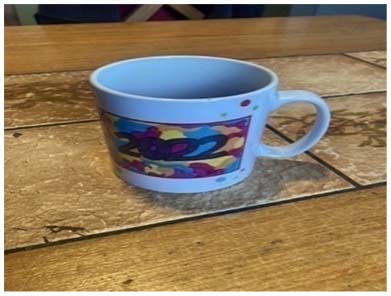
Developing an Anchor approach for the future is having approachable people in more organisations who can have this approach. Offering out more drop in times or dedicated phone lines for people to reach out.
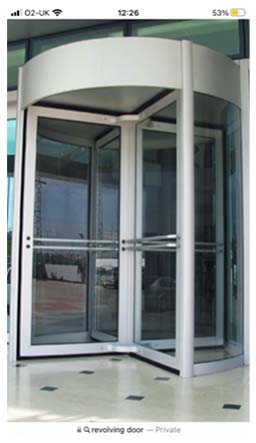
Allowing a revolving door approach where people can come back when they need. Developing the concept of ‘helpful help’. You can have plenty of people around you but it doesn’t mean you have help!
Contact
Email: clld@gov.scot
There is a problem
Thanks for your feedback